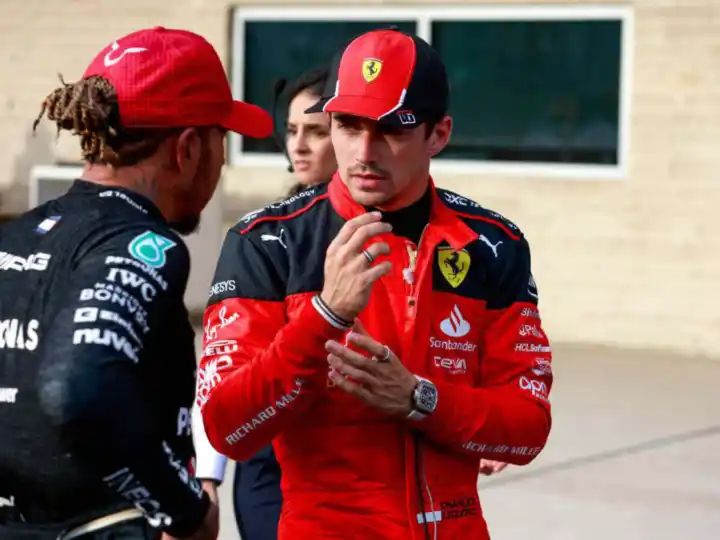Former Formula 1 team boss warns Ferrari about Lewis Hamilton’s behavior towards slower cars.

Flavio Briatore stated that Charles Leclerc will surpass Lewis Hamilton next season if Ferrari does not make the necessary improvements.
The news of Hamilton’s move to Ferrari in 2025, using his exit clause, surprised the Formula 1 community. Hamilton aims to win his eighth world title with Ferrari, but the Italian team must close the gap to Red Bull and develop a competitive car before his arrival. However, former Benetton manager Briatore warned Ferrari about a possible concern regarding Hamilton’s attitude.
A notable aspect of Lewis Hamilton is his willingness to express his dissatisfaction. The British driver has always been vocal about Mercedes’ car performance, and is likely to do the same at Scuderia Ferrari. Briatore suggests that drivers with this characteristic may not push themselves if they feel the cars are not competitive enough, which could lead to a decrease in Hamilton’s productivity.
According to Briatore, Charles Leclerc is an underrated driver who approaches his work differently from Hamilton. If Ferrari is not the leading team, Leclerc may have an advantage over Hamilton. Although Ferrari has achieved two podium finishes this season, Briatore believes the team’s car needs improvements for any driver to make a significant impact.
In the Saudi Arabian Grand Prix, Charles Leclerc surpassed both Lewis Hamilton and another driver. This impressive performance has led many to believe in Leclerc’s potential and consider him as a possible candidate for a seat at Ferrari in 2025. However, the team boss stated that it is too early to make any decisions regarding the future.
Currently, Ferrari is focused on managing its current drivers, Charles Leclerc and Lewis Hamilton, who have multi-year contracts. The team boss emphasizes that, as Hamilton has not yet joined the team, it is premature to speculate on Ferrari’s future beyond his arrival.
O conteúdo Former Formula 1 team boss warns Ferrari about Lewis Hamilton’s behavior towards slower cars. aparece primeiro em AutoGear.





